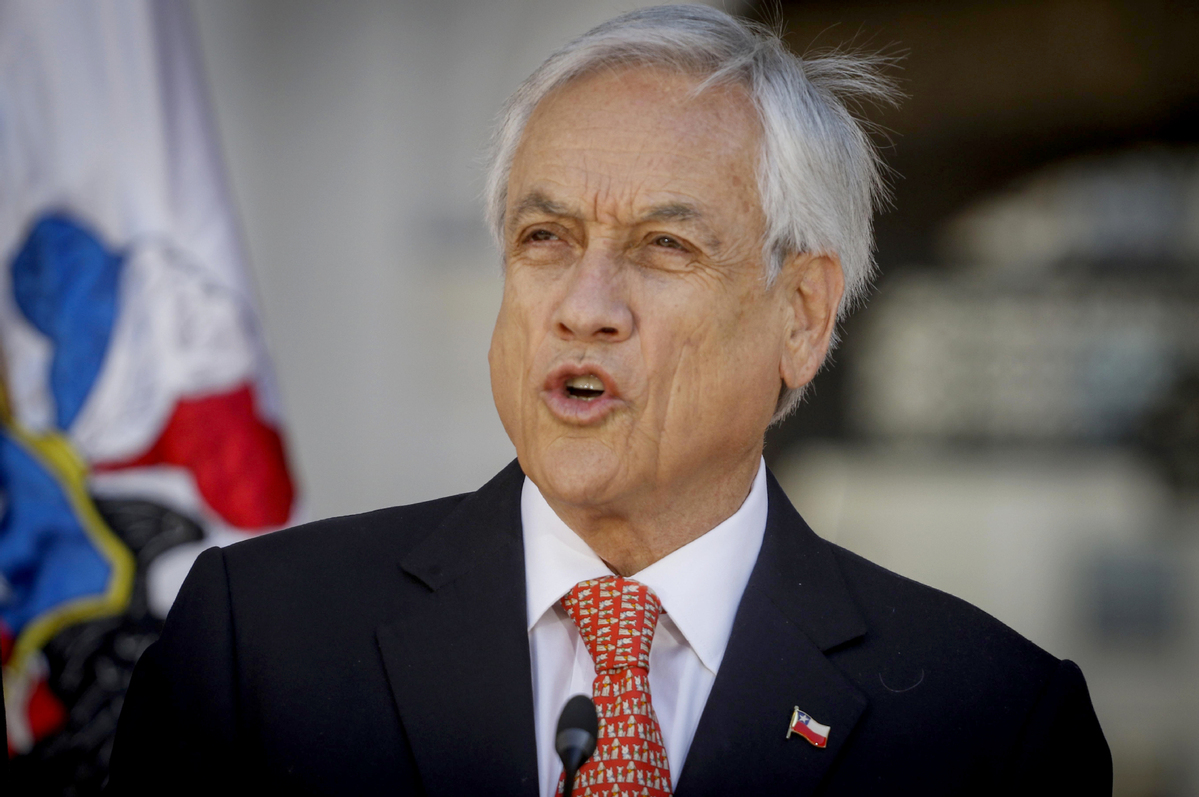Chile's move highlights urgency of action: China Daily editorial
chinadaily.com.cn | Updated: 2019-10-31 21:22

In a surprise move, Chilean President Sebastian Pinera announced on Wednesday that his country would withdraw as the host of the Asia-Pacific Economic Cooperation meeting and the Cop 25 climate change conference scheduled for November and December.
He made the "painful" decision to cancel the key events after weeks of riots over inequality in Chile that have left at least 23 people dead. "I must always put the problems and interests of Chileans, their needs, their desires and their hopes first," he said.
This is a major setback for all APEC members, and the world at large given the issues to be discussed at the meeting and conference have global ramifications.
It was also expected that the "phase one" deal agreed between China and the United States would be signed, sealed and delivered on the sidelines of the APEC meeting that was due to be held on Nov 16-17.
With "alternative hosting options" being explored for the meeting, including in the US and Macao, it seems likely that the much desired meeting between the leaders of the two countries — which is widely expected to take some of the heat out of the two countries' falling out — will take place at some point next month.
But while an agreement of some description between the world's two largest economies would be a welcome shot in the arm for the global economy, given the underlying reasons for Chile pulling out as host of the APEC meeting and climate conference, the government leaders attending the meetings wherever and whenever they are held must do their utmost to ensure they are not just empty talk and come up with concrete actions to forge a better future for people around the world.
While Chile's abrupt pullout has ruined all the meticulously devised plans and arrangements, its decision cannot be used as a convenient excuse to put on hold the difficult trade and climate discussions that were on the agenda.
Rather what has happened in Chile underscores the urgency for those leaders that were due to gather in Santiago to work more closely to tackle some of the most pressing issues the world is facing, among them the most important is to address the rapidly increasing wealth gap globally by promoting inclusive growth.
An Oxfam report revealed early this year that the 26 richest billionaires are worth as much as the 3.8 billion people who make up the poorest half of the world's population. The growing gap between rich and poor is undermining the fight against poverty, damaging the economies and fueling public anger around the world, which has been evidenced by the unrest in many places around the world, not just Chile.
























